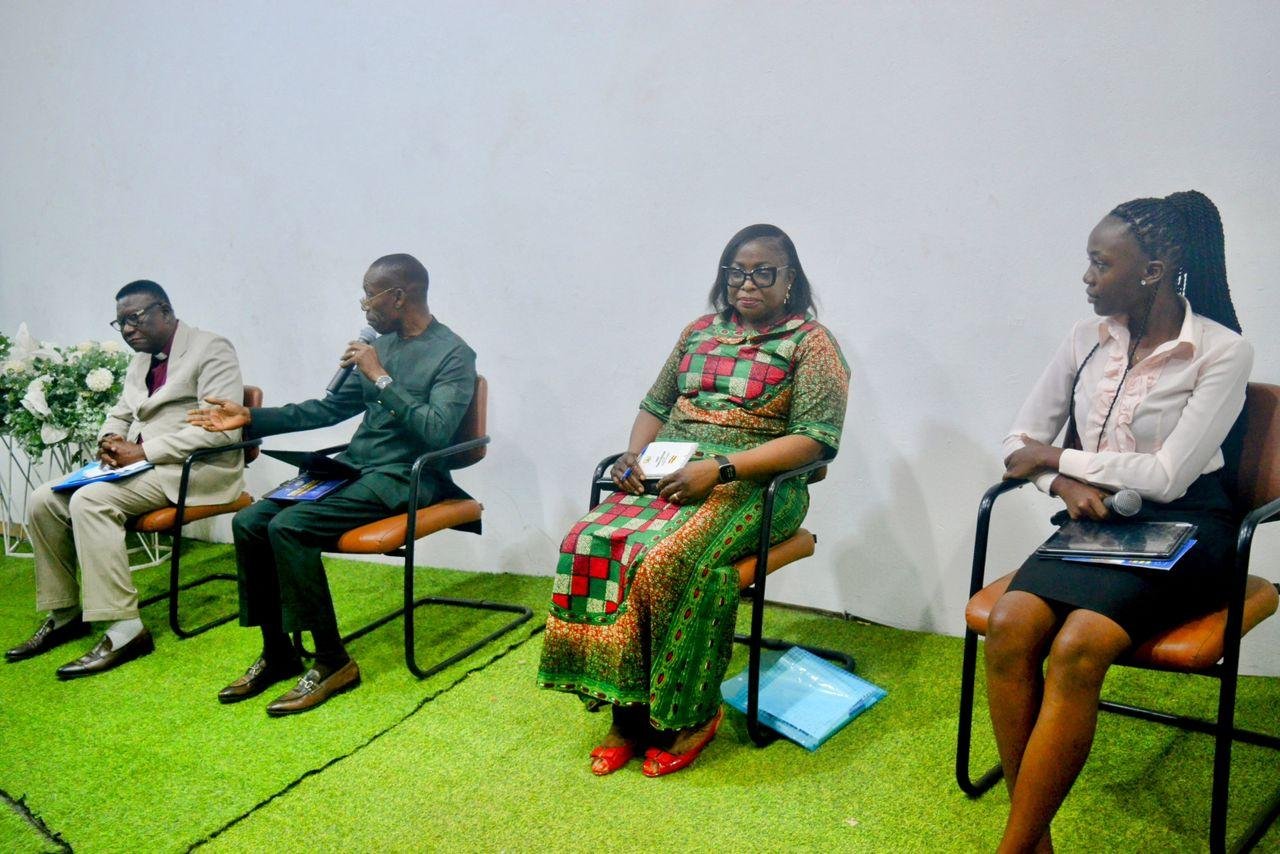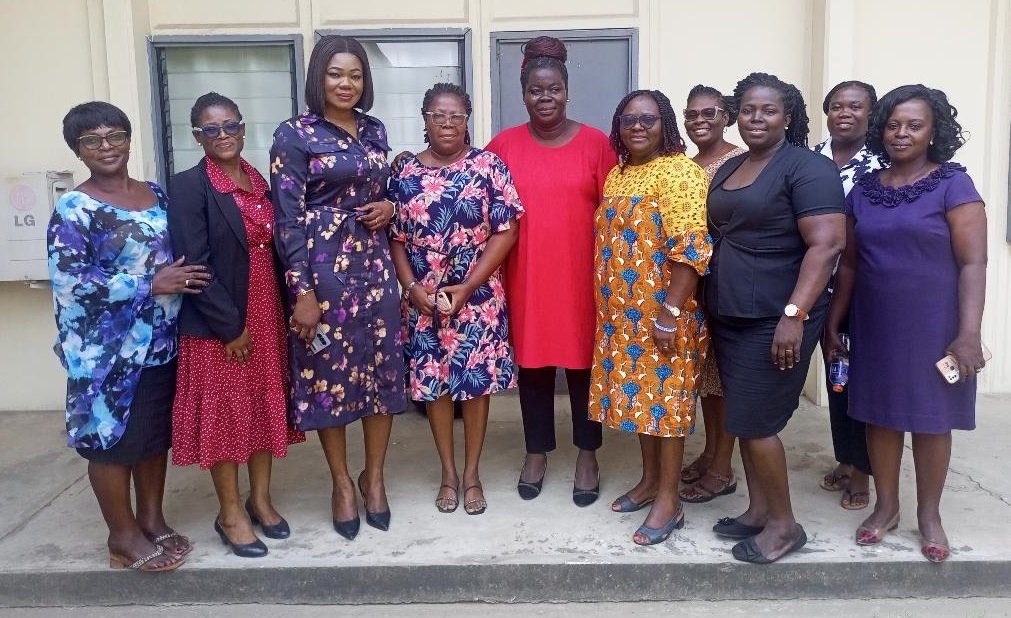News
Train children to tolerate others – Bible Society panelist

Christian parents have been urged to consciously train their children to tolerate others in order to bring about the needed unity in the community and country at large.
She note that as Christians, there was the need to let the unity in the church transcend into the community and the country saying “once we believe in the almighty God, there is the need for us to promote unity.”
A Commission Secretary and Right to Information officer at the National Commisson for Civic Education (NCCE), Mrs Lucille Hewlett Annan, stated this during a panel discussion at the 2025 Bible week celebration held on the theme: ‘the Bible and unity for nation building.’
The event brought together church leaders, pastors, security agencies and staff of various state institutions.
She also said most often, parents and some individuals look up to institutions and religious bodies to ensure unity in the country and blame them when there is misunderstanding between institutions or political parties
She stated that, “but I tell you, the education starts from the house. The way we socialise with our children, the kind of things we tell them is what they will take outside and even grow up with.”
Additionally, Mrs Annan noted that unity was not only about religion but about respect, unity, and tolerating other people’s opinions. And so in our communities, wherever we find ourselves, we should try, despite the challenges, to promote unity.
Mr Alfred Langdon, a Principal Consultant at Alcon said as a Christian and leaders at the workplace, it gives you the opportunity to promote Christ at the workplace.
He said a lot of things that happen at the workplace gives Christians the opportunity to demonstrate the practicality of their faith in uniting people.
An undergraduate law student at the University of Professional Studies, Accra, Ms Veronica Ayerki Ayertei, said today’s youth have allowed social media to influence them to the extent that they have put aside the values instilled in them culturally and spiritually.
She indicated that the principles the Bible teaches which urges Christians to work towards unity are being put aside.
She said “for instance, the Bible talks about God being the ultimate judge, that it is appointed unto man to die once and after death is judgment. But these days on social media, you get judged even before God has something to say about you,” adding that people, most especially Christians have become mean and judgmental.
By Jemima Esinam Kuatsinu
News
Don’t insert foreign material into vagina

A Health expert has expressed concern about the nature of health issues that confronts women in adulthood and has since advised them to help themselves by prioritising vaginal health.
According to the Acting Programmes Manager of the Non-Communicable Diseases (NCDs) at the Ghana Health Service (GHS), Dr Mary Efua Commey, most of the issues that affect women were caused by some negative practices they indulge in at youthful ages.
Those practices, according to her lead to serious health implications and urged them to desist from them.
For instance, the insertion of foreign objects into the private parts was something women must avoid.
Dr Mary Efua Commey gave the caution last week during an interactive session with female staff of the New Times Corporation (Times Ladies) aimed to create awareness on cervical cancer, and the need to vaccinate and screen girls and women.
According to Dr Commey, some women insert white clay, popularly known as ‘ayilo’, naphthalene balls (camphor), cloves (pepre), herbs, vagina tightening creams and many other things into their private parts.
But in response to that, she told the women to “leave the vagina alone; use tap water to wash it, don’t insert your finger into the vagina.”
She underlined that the vagina naturally cleanses itself, hence, there was no need to use soap and other detergents to clean it.
Dr Commey explained that the position of the cervix makes it easier to trap infections, a situation that might create problems, adding that, “let us not create new problems because you don’t know how your body will react to these chemicals.”
According to Dr Commey, women were expected to be screened once every three years but most sexually active women do not get screened after all.
She mentioned that one of the reasons some women shy away from screening was because they do not have the permission of their husbands.
Furthermore, she recounted a few instances where some men acts as impediment on the way of their wives because they do not understand what it means for their wives to be screened for cervical cancer.
She said the death rate for cervical cancer was unacceptably high as the GHS was trying to reduce the number.
She again indicated that over 3,000 cases of cervical cancer was recorded every year with more than half death cases.
Dr Commey mentioned that screening rate among women in Ghana was extremely low with only 3.6 per cent women screening for the disease in 2023.
Moreover, mentioning some of the risk factors of the disease, she said women with family history, multiple sex partners, personal history of abnormal screening results, women with persistent HPV infection, and smoking were prone to it.
She said signs and symptoms of cervical cancer include bleeding during or after sex or between periods, post-menopausal bleeding, unusual vaginal discharge, pain during sex and lower back pain.
By Jemima Esinam Kuatsinu
News
Silence box fighting violence, forced marriages in Nanumba North District

Aisha, a 16-year-old girl’s prefect of Nabuli Junior High School in the Numumba North district of the Northern region, is among hundreds of girls in rural communities, where a simple metal box kept in a safe room in their school is offering a lifeline for many innocent girls.
To the untrained eye, it looks ordinary. It’s just a box with a narrow slit at the top, but to the teenage girls, it is a silent witness and a keeper of secrets. “This is the Violence Reporting Box.
In Nabuli, violence was once an unspoken norm for decades, where issues of domestic abuse, child marriage, and gender-based violence were swept under the carpet.
The victims bore their pain in silence, fearing banishment when such issues were reported to powerful community elders.
It was installed as part of a community driven initiative, spearheaded by ActionAid and implemented by songtaba, a local base NGO.
Madam Hamida Kukuna, the Community Officer for Songtaba at Nabuli said the box does not judge, but only listen, trying to address your issue if you have been wronged.
She indicated that every week, trained volunteers discreetly emptied the box, forwarding reports to a team of social workers and law enforcement officers stationed in the district capital, after victims of violence anonymously slip handwritten notes into the box.
“At first, the box was a curiosity, where children giggled as they looked at it, and villagers questioned its purpose”, she said.
Ms Hamida continue that for weeks it remained empty, then after one rainy evening, she saw a footprint towards the box so she opened it and saw a piece of paper inside.
It stated “He comes every night when my mother is away. I am only 12, Please help me.”
The volunteers acted swiftly and that led to the identification of the girl and rescued her from her abusive uncle, who was later arrested.
The news spread quickly, and for the first time, the people of Nabuli realised the power of this silent box.
Soon, more notes followed, as a wife who had been battered for years sought help and a father reported his daughter’s forced marriage to a much older man.
According to Hamida, the box became a beacon of hope, an outlet for the voiceless.
Moreover, she said within a year the box has facilitated the rescue of over 30 individuals from abusive situations.
“It has also triggered critical conversations about violence, gender roles, and justice in the community, she added.
Mrs Beatrice Yanman Biije, a Programmes Officer at ActionAid Ghana at the Tamale office stated that village council, once complicit in silencing victims, began working with the authorities in creating a safe place for the teenagers.
She said one of the most remarkable transformations was when a 26-year-old mother of two, after years of beatings from her husband, wrote a note to the box with the help of a teacher.
“Her story inspired the creation of a women’s cooperative, offering skills training and support to survivors of abuse,” she said.
She added that, the initiative faced hurdles, where some villagers accused the box of encouraging rebellion and breaking families apart, said an elder in the community.
“Others tried to sabotage it, spreading rumors and threatening volunteers, but the tide was turning with each life saved, the community’s support grew stronger”, she added.
The success of the violence reporting box in Nabuli caught the attention of many schools in the communities around who are working on getting a metal box.
The box stands as a testament to what happens when silence is broken, when whispers become voices, and when justice is given a chance to thrive, even in the most unlikely places.
From Geoffrey Buta, Nabuli







